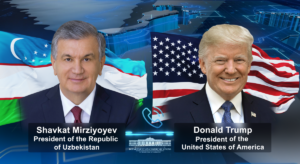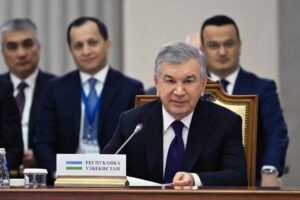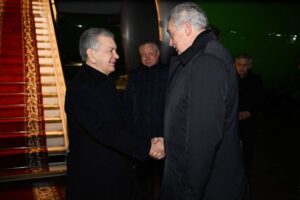The first International NAUKA 0+ Festival to be held in Uzbekistan

Tashkent, The Gulf Observer: On 29-30 October, within the framework of the International Year of Fundamental Sciences for Sustainable Development, the First NAUKA 0+ Festival in the Republic of Uzbekistan will be held in Tashkent.
The Festival will include popular science lectures by leading scientists, interactive exhibitions of scientific achievements, virtual laboratories, exciting scientific performances, discussions about the future of mankind, science films, robot competitions, quizzes, quests and much more.
The venues of the Festival in Tashkent will be the Tashkent Polytechnic Museum, a branch of the Moscow State University named after M.V. Lomonosov, branch of the D.I. Mendeleev, Tashkent Institute of Chemical Technology and other scientific and educational organizations of the country. The partner of the event is the Alisher Usmanov Charitable Foundation “Art, Science and Sport”. Admission to all events of the Festival is free.
Speaking about the significance of the Festival, the rector of Moscow State University named after M.V. Lomonosov Academician V.A. Sadovnichiy noted that the experience of holding such events in other countries shows that they are in demand as one of the most effective forms of interaction between science and society.
Rector of Moscow State University named after M.V. Lomonosov Academician Viktor Sadovnichy said: “The festival of science is designed to tell in a popular, accessible language what scientists do, how science provides a new quality of life. It is especially important to talk about this with young people and children who are just choosing the path of life. Today, Uzbekistan is one of the successful examples of the active development of the knowledge economy, the effective transformation of the achievements of education and research into the results of technological development, the strengthening of the industrial base and infrastructure. The festival is designed not only to raise the level of awareness of citizens about key trends in the world of knowledge, but also to form a new generation focused on self-realization through education and science. This is the future for every country that bases its social progress on the achievements of the human mind.”
The festival was made possible thanks to the support of Alisher Usmanov’s Art, Science and Sport Charitable Foundation.
Director of the Charitable Foundation “Art, Science and Sport” Fatima Mukhomedjan said:
“The Science 0+ Festival is one of the world’s largest educational projects in the field of science popularization and definitely the most popular science festival in Russia. Among the tasks of the Foundation, which were formulated by Alisher Burkhanovich, are not only support for the traditional areas of art and culture for patronage, but also support for popular science projects and projects in the field of education. Especially if they have an international continuation. “Science 0+” in Uzbekistan is an example of the effective popularization of science in the international arena, and we gladly responded to the initiative of Moscow State University to take the Festival outside the Russian Federation.”
Acting Rector of the Russian Chemical Technical University named after D.I. Mendeleev, Ilya Vorotyntsev emphasized the importance of such educational formats as scientific and educational exhibitions, lectures and festivals for the further development of an innovative economy – both on a national scale, and at the regional level, and in a global sense.
Ilya Vorotyntsev said: “Today it is impossible to imagine the successful development of any country outside the innovative context, which, in turn, is formed through the exchange of information between representatives of the scientific community, business circles and the general public. The festival in Tashkent just belongs to the category of events that contribute to this process both at the regional and cross-border levels. A branch of the Mendeleev University has been operating in Uzbekistan for three years now, and we see the keenest interest of different audiences in its educational and educational activities, and through this, in science in general. I am sure that each of the visitors of the Festival will be able to find something informative and useful for themselves in the program of its events.”


